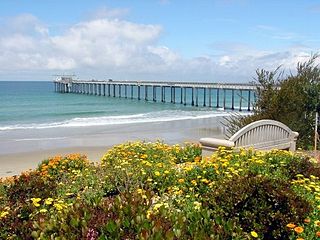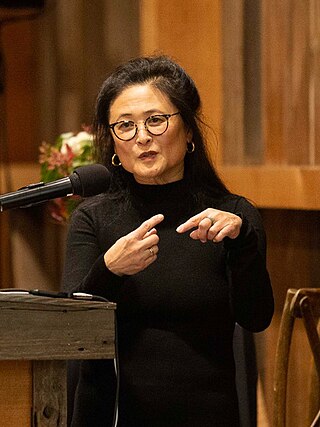Related Research Articles

Scripps Institution of Oceanography (SIO) is the center for oceanography and Earth science at the University of California, San Diego. Its main campus is located in La Jolla, with additional facilities in Point Loma.
Arend d'Angremond Lijphart is a Dutch-American political scientist specializing in comparative politics, elections and voting systems, democratic institutions, and ethnicity and politics. He is Research Professor Emeritus of Political Science at the University of California, San Diego. He is influential for his work on consociational democracy and his contribution to the new Institutionalism in political science.
Avner Greif is an economics professor at Stanford University, Stanford, California. He holds a chaired professorship as Bowman Family Professor in the Humanities and Sciences.

Anne-Marie Slaughter is an American international lawyer, foreign policy analyst, political scientist, and public commentator. From 2002 to 2009, she was the dean of Princeton University's School of Public and International Affairs and the Bert G. Kerstetter '66 university professor of politics and international affairs. Slaughter was the first woman to serve as the director of policy planning for the U.S. State Department from January 2009 until February 2011 under U.S. secretary of state Hillary Clinton. She is a former president of the American Society of International Law and the current president and CEO of New America.

Immigration is the international movement of people to a destination country of which they are not usual residents or where they do not possess nationality in order to settle as permanent residents. Commuters, tourists, and other short-term stays in a destination country do not fall under the definition of immigration or migration; seasonal labour immigration is sometimes included, however.
Opposition to immigration, also known as anti-immigration, is a political ideology that seeks to restrict immigration. In the modern sense, immigration refers to the entry of people from one state or territory into another state or territory in which they are not citizens. Illegal immigration occurs when people immigrate to a country without having official permission to do so. Opposition to immigration ranges from calls for various immigration reforms, to proposals to completely restrict immigration, to calls for repatriation of existing immigrants.
California Cultures in Comparative Perspective is a program at the University of California, San Diego in California dedicated to fostering creative and activist interdisciplinary research, teaching, and collaboration among California's communities, faculty, and students. California, in all its dimensions, is the object of its focus.

Lisa Lowe is Samuel Knight Professor of American Studies at Yale University, and an affiliate faculty in the programs in Ethnicity, Race, and Migration and Women's, Gender, and Sexuality Studies. Prior to Yale, she taught at the University of California, San Diego, and Tufts University. She began as a scholar of French and comparative literature, and since then her work has focused on the cultural politics of colonialism, immigration, and globalization. She is known especially for scholarship on French, British, and United States colonialisms, Asian migration and Asian American studies, race and liberalism, and comparative empires.
Wayne Cornelius is a U.S. scholar of comparative immigration policy and Mexican politics and development. He received his B.A. in Political Science from the College of Wooster in Wooster, Ohio in 1967. Cornelius founded the Center for U.S.-Mexican Studies at the University of California, San Diego in 1979, and directed it from 1979–1994 and 2001-2003. He was also the founding director of UCSD's Center for Comparative Immigration Studies, established in 1999. Cornelius is also a Past President of the Latin American Studies Association. Cornelius has also been a Research Fellow of the Institute for the Study of Labor, the Woodrow Wilson International Center for Scholars, and a member of the Council on Foreign Relations.
Criticism of multiculturalism questions the ideal of the maintenance of distinct ethnic cultures within a country. Multiculturalism is a particular subject of debate in certain European nations that are associated with the idea of a nation state. Critics of multiculturalism may argue against cultural integration of different ethnic and cultural groups to the existing laws and values of the country. Alternatively critics may argue for assimilation of different ethnic and cultural groups to a single national identity.
Rubén G. Rumbaut is a prominent Cuban-American sociologist and a leading expert on immigration and refugee resettlement in the United States. He is Distinguished Professor of Sociology at the University of California, Irvine.
Lisa A. Levin is a Distinguished Professor of biological oceanography and marine ecology at the Scripps Institution of Oceanography. She holds the Elizabeth Hamman and Morgan Dene Oliver Chair in Marine Biodiversity and Conservation Science. She studies coastal and deep-sea ecosystems and is a Fellow of the American Association for the Advancement of Science.
The issue of crimes committed by illegal immigrants to the United States is a topic that is often asserted by more conservative politicians and media outlets when discussing immigration policy in the United States.
Islamophobia in France holds a particularly political significance since France has the largest proportion of Muslims in the Western world, primarily due to the migration from Maghrebi, West African, and Middle Eastern countries. The existence of discrimination against Muslims is reported by the media in the Muslim world and by the perceived segregation and alienation of Muslims within the French community. The belief that there is an anti-Muslim climate in France is heavily criticised by some members of the French Muslim community who terms it an 'exaggeration'.

Ruud Koopmans is a Dutch sociologist and professor at the Humboldt University of Berlin. His research focuses on migration, social integration and transnationalization.
David D. Laitin is the James T. Watkins IV and Elise V. Watkins Professor of Political Science in the School of Humanities and Science at Stanford University. He is a comparative politics scholar who has written works on civil war, ethnic identity, culture and nationalism. He is known for his application of rational choice to the study of ethnic conflict, and for bridging a gap between ethnography and rational choice.
Sara Wallace Goodman is an American political scientist. She is an associate professor of Political Science at the University of California, Irvine.
Jennifer Burney grew up in Albuquerque, New Mexico, and is now professor and the Marshall Saunders Chancellor's Endowed Chair in Global Climate Policy and Research at the University of California, San Diego, as part of the School of Global Policy and Strategy. She studied history and science at Harvard University and earned a PhD in physics from Stanford, developing a superconducting camera to capture images of cosmic bodies, like pulsars or exoplanets. After graduating, she worked for Solar Electric Light Fund on rural electrification, particularly in West Africa.
References
- 1 2 "Claire Adida". pdel.ucsd.edu. Retrieved 2020-12-01.
- ↑ "Claire L. Adida". polisci.ucsd.edu. Retrieved 2024-10-08.
- ↑ "Editorial board". Cambridge Core. Retrieved 2020-12-01.
- ↑ Verdier, Thierry (2019). "Review Essay on Why Muslim Integration Fails in Christian-Heritage Societies by Claire Adida, David Laitin and Marie-Anne Valfort". Journal of Economic Literature. 57 (1): 96–119. doi: 10.1257/jel.20171415 . ISSN 0022-0515. S2CID 150831299.
- ↑ Schneider, Cathy Lisa (2016). "Why Muslim Integration Fails in Christian-Heritage Societies. Edited by Claire L. Adida, David D. Laitin and Marie-Anne Valfort . Cambridge: Harvard University Press, 2016. 264 pp., $45.00 (cloth)". Journal of Race, Ethnicity and Politics. 1 (2): 353–355. doi:10.1017/rep.2016.12. ISSN 2056-6085.
- ↑ "Here is what social science can tell us about the terrorist attacks in Paris". The Washington Post. 2015.
- ↑ "Can mostly Christian countries integrate Muslims? This new book shows what must be done". The Washington Post. 2015.
- 1 2 "Burney Receives 2017 Global Environmental Change Early Career Award". Honors Program. Retrieved 2021-02-06.